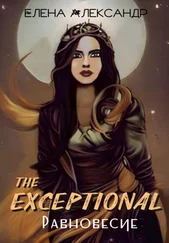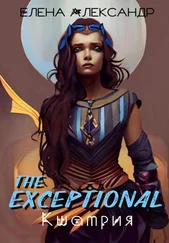Christian Jungersen - The Exception
Здесь есть возможность читать онлайн «Christian Jungersen - The Exception» весь текст электронной книги совершенно бесплатно (целиком полную версию без сокращений). В некоторых случаях можно слушать аудио, скачать через торрент в формате fb2 и присутствует краткое содержание. Год выпуска: 2010, Издательство: Orion Books, Жанр: Современная проза, Триллер, на английском языке. Описание произведения, (предисловие) а так же отзывы посетителей доступны на портале библиотеки ЛибКат.
- Название:The Exception
- Автор:
- Издательство:Orion Books
- Жанр:
- Год:2010
- ISBN:нет данных
- Рейтинг книги:3 / 5. Голосов: 1
-
Избранное:Добавить в избранное
- Отзывы:
-
Ваша оценка:
- 60
- 1
- 2
- 3
- 4
- 5
The Exception: краткое содержание, описание и аннотация
Предлагаем к чтению аннотацию, описание, краткое содержание или предисловие (зависит от того, что написал сам автор книги «The Exception»). Если вы не нашли необходимую информацию о книге — напишите в комментариях, мы постараемся отыскать её.
The Exception — читать онлайн бесплатно полную книгу (весь текст) целиком
Ниже представлен текст книги, разбитый по страницам. Система сохранения места последней прочитанной страницы, позволяет с удобством читать онлайн бесплатно книгу «The Exception», без необходимости каждый раз заново искать на чём Вы остановились. Поставьте закладку, и сможете в любой момент перейти на страницу, на которой закончили чтение.
Интервал:
Закладка:
She has a glimpse of Gunnar and Iben’s future. They live in Gunnar’s flat, sharing it with his pieces of African furniture, their baby and visits from his two daughters from his first marriage. Without Malene wanting to, she is suddenly part of this set-up. Rasmus has left her and she, like an unmarried, sickly aunt, comes to see her friends often. She shakes the image off almost before it has even formed in her mind.
A little later she and Rasmus are in bed together and now Malene takes the initiative. She notes the odd scent of hotel toiletries again and does everything she can to make it special for him. His weight on her is just right and she enjoys his strong, healthy hands. She has an orgasm this time, though a small one.
Rasmus wants to get up and have something more to eat. He is content now, easier to talk to. She is less sure about her own feelings.
Back in bed they lie and talk. She shows him the printout of the email from revenge_is_near. He says she mustn’t be afraid, she’ll be all right. She tells him about the evening they spent with Grith and about the mental disorder that causes a person’s identity to split and dissociate. This interests him. He is sitting up, eating prosciutto with leftover pieces of melon. There’s a slice of bread with butter and salt on the side.
‘What Grith says is, the emailer might behave like a perfectly normal person — not someone obviously violent, that is. It could be anyone who knows us. And whoever it is also knows a great deal about genocides.’
‘So how would you go about finding out who it is?’ Rasmus asks.
‘Well, it could be someone who is connected to the Centre and whose personality has split to separate out his or her anger — someone we meet often, perhaps every day.’
Later, when Malene has started her evening finger exercises, using her blue ball, Rasmus still ponders what she has said. His mouth glistens with melon juice.
‘Did Grith explain how to find out if a person has parcelled off anger and so on into a separate personality?’
‘No, she didn’t.’
‘So you might think Anne-Lise did it, but you can’t prove it? You have to treat her as if she were innocent?’
Malene smiles to let him know that he has hit the nail on the head. ‘You’re so right.’
They lie close, comfortable together, and fantasise about how they could trap the sender of the emails. Malene’s head rests on Rasmus’s chest and her arms are around him. She looks out through the window.
She thinks about Iben and how it has only been forty-eight hours since Iben was too scared to come here to stay the night because she really believed that someone might break in and slay her while she slept. What has changed since then?
Sometimes you feel deeply sad on the first truly lovely day in spring. Sometimes you feel fresh and alert after a stupidly late night. Now Malene feels exactly the opposite of what she expected: she feels safe. She loves holding her tentative lover close and thinks that she would do anything at all to make him happier about being with her.
Europe’s Forgotten Genocide
In May a conference arranged by the Danish Centre for Genocide Information will examine the expulsion of 15 million Germans from their homes in Eastern Europe. It is one of the world’s largest ethnic-cleansing operations, but until recently it was more frequently discussed among Holocaust deniers than among serious researchers .
By Malene Jensen
The Second World War was almost over, and the Soviet Red Army was pushing into Germany. The Russian soldiers had fought for two years in German-occupied Russia and Poland, marching through landscapes scarred by the Nazi attempt to conquer the Slav race.
Even before the declaration of war, Hitler had instructed German army leaders to kill ‘all men, women and children of Polish origin, showing neither mercy nor compassion’. Apart from acts of war, German soldiers took part in this genocide by shooting, executing and enforcing planned mass death by starvation of at least ten million Russians and Poles. Now the situation was reversed. The Soviet soldiers found the German countryside and its villages empty of able-bodied men. German aggression had cost practically every Russian soldier the life of a loved one — a family member, an old friend, a comrade-in-arms — and for four years they had all been hungry, frozen and without women.
The men went berserk. There are endless eyewitness accounts of how all women, from ten to eighty, were raped. Some died after multiple rapes. Not all the women were shot afterwards, but the Russian officer Aleksandr Solzhenitsyn, later a Nobel Prize-winning author, wrote about what he had seen in the long, epic poem Prussian Nights : ‘Virgins were made women, and soon the women would be dead bodies, as, sick of mind and with bloodshot eyes, they begged: “Kill me, soldier!’”
The rapes no one wants to remember
Afterwards all those involved tried to suppress awareness of these violations. The subject was taboo until a German book about it was finally published in 1992, Befreier und Befreite (Liberators Take Liberties) , a collection of papers edited by Helke Sander and Barbara Johr. In his contribution, the statistician Gerhard Reichling estimates that 1.9 million German women were raped during the months of the invasion. The number of actual rapes is many times greater, since it was rare for a woman to be raped only once. A major proportion of the forty thousand written witness accounts held in the German Bundesarchiv — Ostdokumentation (a state archive for documentation about the eastern front, housed in the city of Bayreuth) describes how groups of women were kept captive in cellars to be used by soldiers in any way the men wanted, at any time.
There are several eyewitness accounts describing what took place in the East Prussian country town of Nemmersdorf, where naked women were crucified on the doors, nails hammered through their hands and feet. Children, wounded soldiers from the German army, and old men who had never been called up were shot in the back of the head or transported to Russian concentration camps or clubbed to death.
Ilya Ehrenburg, the Stalinist writer, wrote in a leaflet distributed to the Russian soldiers: ‘Count not days, nor the kilometres travelled. Count only the number of Germans you have killed. Kill Germans — this is your mother’s prayer. Kill Germans — this is the cry from the land of Russia. Do not hesitate. Do not stop. Kill.’
The soldiery was not only Russian, but included Mongolian cavalry and contingents from the other 150, mainly Asiatic, nationalities under Soviet rule. All were let loose to do anything and everything they wanted, except show mercy. Gang rapes were rewarded as if they were heroic acts. Not participating in the killing of German civilians could lead to court martial and was punished either by imprisonment (as in the case of Solzhenitsyn) or execution.
The winter of 1945 was harsh. The exodus of Germans from East Prussia took place at temperatures of 18 to 25 degrees below zero. The Soviet air force, and later its tank divisions, shot at and bombed the refugees. In a flanking manoeuvre the infantry cut off escape routes to West Germany and many of the refugees chose to walk towards the coast instead, where they tried to board ships. One of these ships, the Wilhelm Gustloff , designed to carry 1,460 passengers, was sunk by a Soviet submarine. Of the 11,000 civilians on board, 9,000 died in that one attack — roughly six times as many as drowned in the sinking of the Titanic .
Königsberg becomes Kaliningrad
Many fugitives were stranded in Königsberg, the besieged East Prussian capital. The harbour city of Königsberg was once one of Germany’s finest, cultured and elegant, and full of beautiful old buildings, including a famous cathedral, museums and theatres. Before Hitler’s rise to power, the university in Königsberg was internationally acclaimed. The city boasted seven newspapers and Germany’s biggest bookshop, which catered for — among others — its many scientists and artists. In July 1944 a group of Königsberg officers carried out a failed attempt to kill Hitler.
Читать дальшеИнтервал:
Закладка:
Похожие книги на «The Exception»
Представляем Вашему вниманию похожие книги на «The Exception» списком для выбора. Мы отобрали схожую по названию и смыслу литературу в надежде предоставить читателям больше вариантов отыскать новые, интересные, ещё непрочитанные произведения.
Обсуждение, отзывы о книге «The Exception» и просто собственные мнения читателей. Оставьте ваши комментарии, напишите, что Вы думаете о произведении, его смысле или главных героях. Укажите что конкретно понравилось, а что нет, и почему Вы так считаете.












